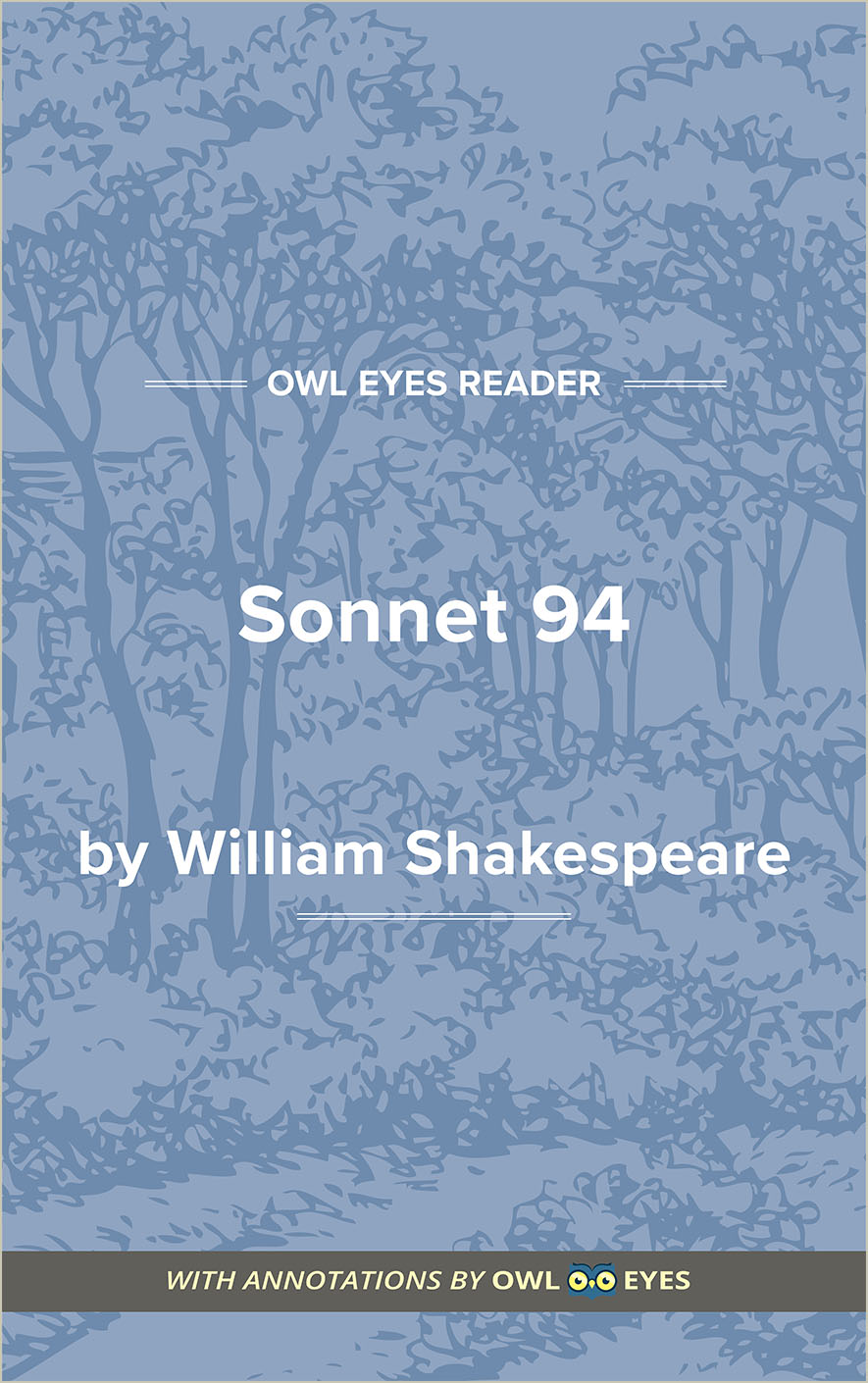Analysis Pages
Metaphor in Sonnet 94
Metaphor Examples in Sonnet 94:
Sonnet 94
🔒"dignity..." See in text (Sonnet 94)
"basest..." See in text (Sonnet 94)
"stewards..." See in text (Sonnet 94)
"expense..." See in text (Sonnet 94)
"heaven's graces..." See in text (Sonnet 94)

